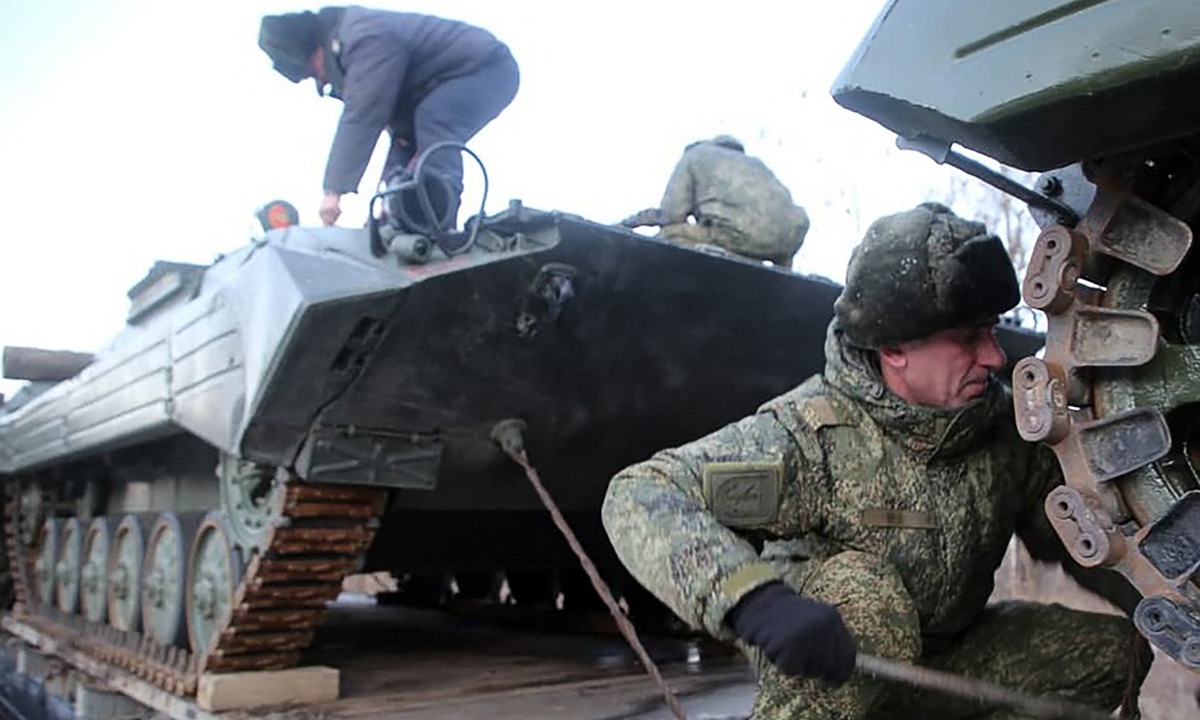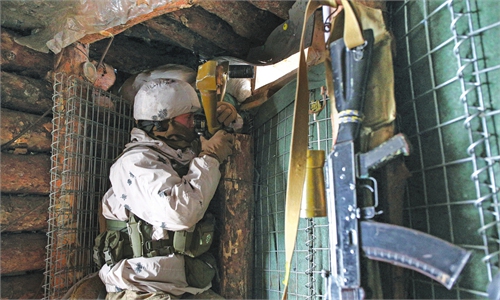
This handout photograph released on January 18, 2022, by Belarus' Defense Ministry, shows Russian troops preparing military vehicles to be unloaded from a troop train for joint drills in Belarus. Belarus said that Russian troops had begun arriving in the country for military drills announced against the backdrop of tensions between the West and Russia over neighboring Ukraine. Photo: AFP
The dive in Chinese stocks on Tuesday was partly fueled by an overnight slide in global capital markets over the Ukraine issue and the US Fed's upcoming tightening, which led to domestic investors' panicked dumping amid risk aversion, analysts said.But as the A-share market has been undergoing an adjustment for some time, the impact of overseas capital markets will be controllable, the analysts stressed.
The A-share market opened lower on Tuesday, and in the afternoon, the three major stock indexes fell by more than 2 percent, and the ChiNext index fell below the 3,000-point mark for the first time since May 2021.
Global shares have been dragged down by geopolitical risks. Russian stocks and bonds plummeted on Monday evening, and the Russian central bank announced the suspension of foreign exchange purchases after the ruble hit the lowest point in more than a year. Other European markets were not spared, and European stocks suffered heavy losses, while energy prices soared.
"The Russian market index slumped over 10 percent on Monday, weighing on the European market. Tensions between the US and Russia are also likely to generate an impact on global capital markets in the short term," Yang Delong, chief economist at Shenzhen-based First Seafront Fund Management Co, told the Global Times on Tuesday.
Dong Dengxin, director of the Finance and Securities Institute at the Wuhan University of Science and Technology, told the Global Times on Tuesday that China's stock market has the capacity to digest short-term fluctuations and stabilize.
Also, "market sentiment generally remains weak as liquidity tightened ahead of the Spring Festival holidays, and such a situation would improve shortly after the holidays," Dong noted.
He said that tension between Russia and Ukraine would be just a "short-term shock" to the market, if the situation does not further escalate.
"In fact, the biggest source of uncertainty for global markets is the bungee jump of the US stock market as the Fed continues to tighten rates, and if the bubble in the US market collapses, it will rattle global markets and send them into a freefall," Dong said.


